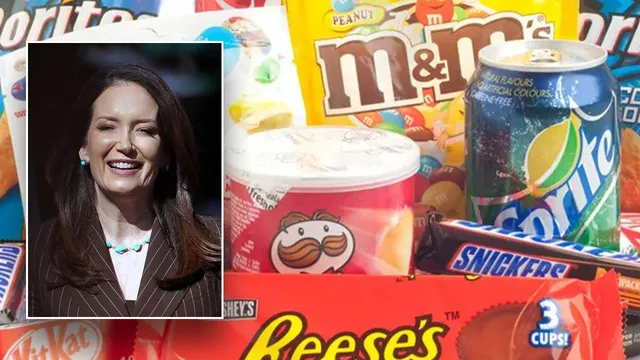
Nebraska bans SNAP purchases of soda and energy drinks
2025-05-22 19:10- Nebraska has received a federal waiver to exclude soda and energy drinks from SNAP purchases beginning in 2026.
- This decision affects about 152,000 people enrolled in the Supplemental Nutrition Assistance Program in Nebraska.
- The action has sparked a debate over health implications and the stigma on SNAP recipients.
Express your sentiment!
Insights
In a groundbreaking decision, Nebraska has been granted a federal waiver allowing the state to prohibit the use of Supplemental Nutrition Assistance Program (SNAP) benefits for the purchase of soda and energy drinks. This approval, announced by U.S. Agriculture Secretary Brooke Rollins, marks a historic shift in the SNAP program, which has traditionally allowed recipients to purchase a wide range of food items, including sugary beverages. The new restrictions will take effect on January 1, 2026, and will impact approximately 152,000 individuals who rely on SNAP in Nebraska. The move to ban soft drinks and energy drinks has sparked considerable debate regarding the implications of such restrictions. Proponents of the ban, including Nebraska Governor Jim Pillen, argue that taxpayer funds should not subsidize unhealthy food choices, emphasizing that SNAP should focus on assisting families in obtaining nutritious food. Conversely, critics, including anti-hunger advocates and nutrition experts, warn that these restrictions could create additional stigma for SNAP beneficiaries and may not effectively tackle issues related to dietary health. Historically, attempts to impose similar limits on SNAP benefits have faced significant challenges. The USDA has previously denied requests from other states, stating that there was no clear classification of foods as
Contexts
The debate on reforms to the Supplemental Nutrition Assistance Program (SNAP) has gained prominence as policymakers strive to address food insecurity and ensure that assistance reaches those in need. SNAP, formerly known as food stamps, plays a crucial role in alleviating hunger, offering vital support to millions of low-income individuals and families across the United States. However, critics argue that the program requires significant changes to enhance its effectiveness, efficiency, and sustainability in the face of evolving economic conditions and public health challenges, particularly those exacerbated by the COVID-19 pandemic. Proponents of reform emphasize the importance of streamlining the application process to remove bureaucratic barriers that can prevent eligible individuals from receiving benefits. Currently, the SNAP application process can be convoluted and time-consuming, often requiring extensive documentation. By simplifying these requirements and implementing technology-driven solutions such as online applications and direct certifications from other social services programs, states could significantly reduce the administrative burden on both applicants and agencies. Additionally, reforms that allow more flexibility in benefit usage—such as enabling recipients to purchase fresh produce or other healthy food options—would further align the program with public health objectives. Moreover, the discussion around SNAP reforms includes proposals to address funding and economic incentives that could improve program outcomes. While some suggest increasing benefit amounts to better reflect the actual costs of living, others advocate for providing financial literacy education and job training alongside SNAP benefits. Integrating these services could help individuals not only obtain food assistance but also improve their long-term economic prospects. Advocates argue that, by investing in participants' futures, SNAP reforms could ultimately reduce dependency on government assistance programs and promote self-sufficiency. Despite these compelling arguments for reform, there remains significant opposition, often grounded in ideological perspectives regarding welfare dependency and government spending. Critics argue that increasing benefits or expanding eligibility could lead to greater costs for taxpayers and potentially encourage reliance on government assistance instead of individual empowerment. As the debate continues, it is essential for lawmakers to weigh the urgency of addressing food insecurity against the need for responsible fiscal policy, ensuring that any reforms strike a balance between adequately supporting those in need while fostering long-term solutions to poverty and economic disparity.